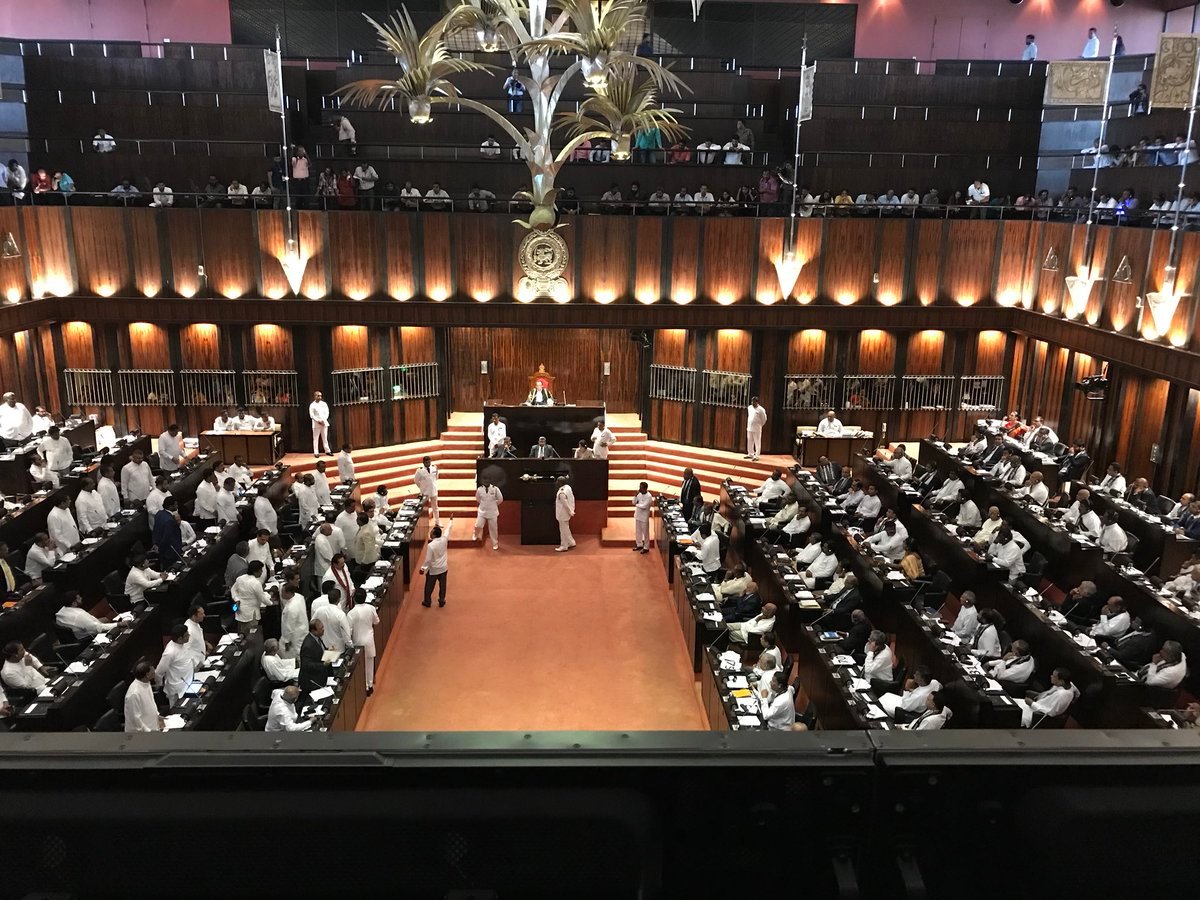
DIYAWANNA Dilemma in Sri Lanka
What is the world coming to when the Speaker of Parliament fails to act independently and impartially and incurs the opprobrium of the entire Opposition to the extent of provoking an attempt to oust him? It is only natural that public trust in the legislature has eroded severely, in this country, and the number of Sri Lankans who wish they could do, here, what Guy Fawkes failed to accomplish through the Gunpowder Plot of (1605), in London, is on the rise.
Sri Lanka’s parliamentary history is replete with serious allegations against the Speakers, some of whom willingly became putty in the hands of their political bosses and did not scruple to subjugate the dignity of their office to self-interest. It is against this backdrop that the Opposition’s motion of no confidence against Speaker Mahinda Yapa Abeywardena should be viewed.
The Opposition says Speaker Abeywardena did not follow the proper process in declaring that the Online Safety Bill (OSB) had been passed on 24 January 2024 amidst a noisy protest in the House, and endorsing the certificate thereon. It insists that the OSB had not been amended in accordance with the Supreme Court guidelines at the committee stage to enable it to be passed with a simple majority.
Justice Minister Dr. Wijeydasa Rajapakse told Parliament, a few weeks ago, that once a law made by Parliament, there was absolutely nothing that even judiciary could do about it. the bills that become law after being properly ratified by Parliament and duly endorsed by the Speaker are faits accomplis, for there is no constitutional provision for the post- enactment judicial review of legislation, but the same cannot be said about the bad laws that are made in violation of the Constitution. If a government is allowed to abuse its parliamentary majority to make draconian laws according to its whims and fancies, with no heed for due process and Supreme Court guidelines, and the end of democracy!
The Rajapakse-Wickramesinghe government’s willingness to amend the Online Safety Act (OSA) is tantamount to its admission that the due process was not allowed when OSB was ratified and subsequently signed into law. The SLPP-UNP regime, which is bent on bulldozing its way through, would not have offered to do so out of any concern for democratic dissent.
No bill should be put to the vote in Parliament, much less deemed to have been passed without a vote while the House is in turmoil. The unfortunate situation we witnessed in Parliament on 24 January, could have been avoided if the stormy sitting had been adjourned for tempers to cook down before a vote was taken.
SSpeake Abeywardena is drawing heavy flak for having declared that the appointment of Deshabandu Tennakoon as IGP had been endorsed by the Constitutional Council (CC). Opposition Leader Sajith Premadasa has revealed that only four vote were cast for Tennakoon’s appointment, with two CC members opposing it; two others abstained. The Speaker should not have sought to cut the Gordian knot by casting his vote to increase the number of votes for endorsing the appointment at issue to five. He can only vote to break a tie.
There was no equality of votes where Tennakoon’s appointment was concerned. It is being argued in some quarters that since there wew four ayes, it was in order for the Speaker to cast his vote, but that argument is flawed in that by no stretch of the imagination can abstentions be considered nays. Otherwise, a very bad precedent created; by the same token, all abstentions in Parliament will have to be considered nays.
When CC process happens to be deadlocked, as was the case in respect of the appointment of Tennakoon as IGP, it should begin anew, with new names being submitted by the Executive, or the CC members and the Executive patching up a compromise instead of remaining intransigent and locking horns. Since such a conciliatory approach requires statesmanship, which is rarity in this country, a constitutional mechanism has to be put in place to break a deadlock like the aforesaid one. Most of all, the CC should, as a matter of priority, evolve the procedure and practice guidelines stipulating the manner in which its proceeding should be conducted, as we argued in previous comment.
As for the problem of governments rushing Bills through the House and having the Speaker sign them into law, the solution is to bring in a constitutional amendment to enable the post- enactment judicial review of all laws. Sadly, most of the Opposition worthies baying for the Speaker’s blood have called for a permanent solution to the problem. Is it that they do not want the problem solved, once and for all, in the hope that one day they too will be able to do what they are currently raking their ruling party counterparts over the coals for?






